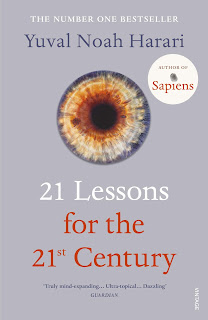A good thing about the current pandemic is that I’ve had plenty of time to read. I'm currently updating a list of the best books I’ve come across so far. Please see my home page for the previous entries.
Here you won't find the pages of a pedantic journal, praises to fantastic places or accounts of memorable encounters. This is a collection of stories, thoughts, images, and most of all odd stuff, even though to someone else it might actually look ordinary. To discern its bizarre side, in fact, special filters are needed: cynicism, fussiness, stubbornness, isolation, impudence, nosiness and nerdiness. All flaws that, in different measure, this semi-nomadic being has got embedded in his genes.
Thursday, February 25, 2021
Collapse - Jared Diamond
A good thing about the current pandemic is that I’ve had plenty of time to read. I'm currently updating a list of the best books I’ve come across so far. Please see my home page for the previous entries.
Tuesday, February 23, 2021
Trainspotting - Irvine Welsh
This list seems to suggest that I’m not much into novels. It’s not true: I’ve read hundreds of them. It’s just that these recent months have been more of a “not fiction” period for me. Let’s talk about a novel then, for a change.
This is a cult. Everybody has seen the movie. I’m not gonna get into the typical dispute: “The book is better!”, “No, the movie is!” What I can say is that they surely are quite different.
Thursday, February 18, 2021
River out of Eden - Richard Dawkins
As I already mentioned when I reviewed Siddhartha Mukherjee’s “The gene”, we live in an increasingly science-driven society, and one can’t really understand much of it without some basic knowledge of biology.
In this book Richard Dawkins compares life to a river of genes, flowing through time using organisms (including humans) as temporary vessels. The title is obviously quoting a Biblical passage, and that’s not a coincidence.
Tuesday, February 16, 2021
21 lessons for the 21st century - Yuval Noah Harari
We already met Yuval Noah Harari twice. If “Sapiens” is about our distant past and “Homo Deus” tries to explore what lies ahead of us, “21 lessons for the 21st century” focuses on the missing segment: the one that sees us, rather than our ancestors or descendants, as main characters: the present.
Thursday, February 11, 2021
Outliers - Malcolm Gladwell
Have you always thought, like myself, that in order to excel in any one field you must be wonderfully talented, extremely skilled and very persevering? Well, it’s true, you need all that, but unfortunately it’s not gonna be enough. What else, then? That’s what this book is about.
We already know that Malcolm Gladwell’s trick to writing a good book is…examples, examples, examples! Very revelatory examples. And here are a few good ones.
Tuesday, February 9, 2021
Wherever you go there you are - Jon Kabat-Zinn
A good thing about the current pandemic is that I’ve had plenty of time to read. I'm currently updating a list of the best books I’ve come across so far. Please see my home page for the previous entries. Eighth item. For those of you who are interested in, curious about, already into, or even skeptical of meditation, this is a great read. It’s a very serious dive into the realm of mindfulness, offering the best of both worlds (meaning East and West) about the topic: Jon Kabat-Zinn is an American professor emeritus of medicine and has been a student of some of the world's most famous Buddhist teachers (the Dalai Lama, Thích Nhất Hạnh, Seungsahn).
Thursday, February 4, 2021
Factfulness - Hans Rosling
A good thing about the current pandemic is that I’ve had plenty of time to read. I'm currently updating a list of the best books I’ve come across so far. Please see my home page for the previous entries.
The seventh item on this list is an eye opener, and very encouraging at that.
Hans Rosling spent the last decades of his life asking people a set of very simple questions about the state of the world. For example: in all low-income countries across the world today, how many girls finish primary school? What share of the world’s population don't have enough food to meet their daily needs? How did the number of deaths per year from natural disasters change over the last hundred years? In 1996, tigers, giant pandas, and black rhinos were all listed as endangered. How many of these three species are more critically endangered today? How many people in the world have some access to electricity?
Tuesday, February 2, 2021
Homo deus - Yuval Noah Harari
A good thing about the current pandemic is that I’ve had plenty of time to read. I'm currently updating a list of the best books I’ve come across so far. Please see my home page for the previous entries.
Yuval Noah Harari strikes back. If his "Sapiens" (introduced here along with Jared Diamond's "The third chimpanzee") answers the "Where do we come from?" question, "Homo Deus" addresses the "Where are we going?" one.







